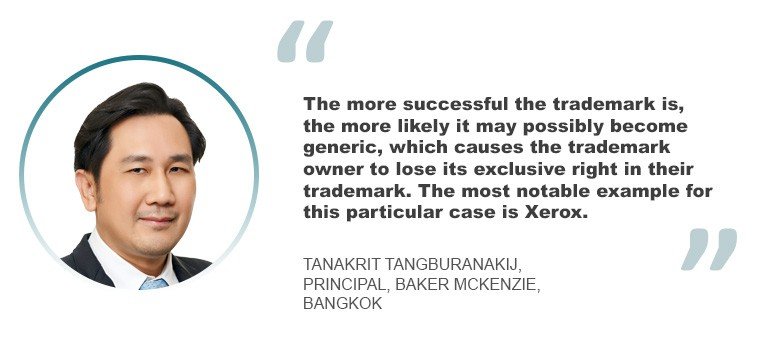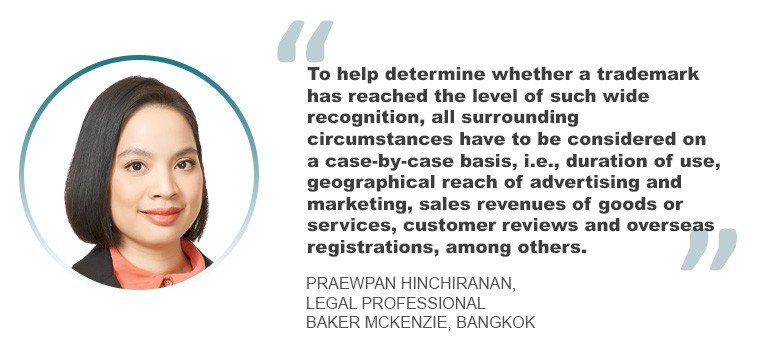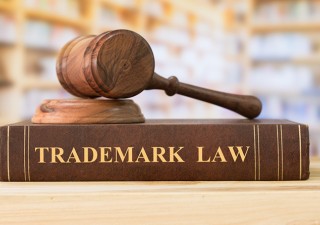A look at trademark dilution – and how it impacts brands
31 July 2022

The theory of trademark usage is crucial in guaranteeing that the goal of trademark law is to encourage market growth interchange and decrease the cost of consumer search. With this, the theory ensures that trademarks do not infringe on others’ intellectual property or become a weapon for suppressing or interfering with speech rather than promoting the marketplace’s effective operation.
These objectives are much more critical in the case of trademark dilution. Unlike trademark infringement, trademark dilution usually does not involve the unauthorized use of a trademark in connection with goods or services which are similar or confusingly similar to the other’s goods or services in connection with the famous trademark.
To illustrate it more clearly, if “Brand A” is famous and well-known for luxury cosmetics and there is a person selling slippers in a flea market under the name of Brand A, it may be considered as trademark dilution. Although the consumers are unlikely to believe that Brand A slippers are associated with or related to Brand A luxury cosmetics, the unauthorized use of the name Brand A with the slippers may tarnish Brand A’s reputation for its distinctive quality.
Relying on other provisions
In Thailand, the trademark act does not expressly specify trademark dilution. In case of trademark dilution, the trademark owner may rely on other relevant provisions, such as, among others, wrongful act (tort) provisions under the civil and commercial codes, to claim for compensation. According to current practice, the court would normally grant compensation to the plaintiff based on actual provable damages.
“While a generic name cannot be protected as trademark, a trademark can become a generic name,” says Tanakrit Tangburanakij, a partner at Baker McKenzie in Bangkok. “This incident is likely to occur with a well-known trademark. The more successful the trademark is, the more likely it may possibly become generic, which causes the trademark owner to lose its exclusive right in their trademark. The most notable example for this particular case is Xerox. Xerox has tried to resolve their trademark from becoming a generic name by encouraging consumers and advertising to use the word photocopying instead of Xeroxing to cease the misuse of the Xerox trademark and remain as a trademark, not a generic name.”

However, when a trademark becomes a generic name, it may lose its exclusive right in the said trademark and may no longer be protected as a trademark.
“Accordingly, anyone may use such name to promote their products or services,” he says. “This could impact the value and distinctiveness of the brands, and businesses could struggle in promoting their products or services which may lead to loss of sales. Some examples of trademarks that became generic names include Escalator, Aspirin and Dry Ice. To protect the trademark from becoming generic, advertisement play an important role. Advertisement or marketing campaigns of the trademark to the consumers to differentiate between the trademark and generic product name is required.”
For his colleague, Praewpan Hinchiranan, an associate at Baker McKenzie in Bangkok, the most challenging issue on trademark dilution is how famous the mark is.
“While the Thai Trademark Act does not have specific provisions on trademark dilution, the trademark acts in some countries provide that a trademark will be considered famous if it is widely recognized by the general consuming public as a designation of source of the goods and services of the trademark’s owner,” she says. “To help determine whether a trademark has reached the level of such wide recognition, all surrounding circumstances have to be considered on a case-by-case basis, i.e., duration of use, geographical reach of advertising and marketing, sales revenues of goods or services under the said trademark and invoices, the extent of actual recognition of the trademark, and the registration of the trademark, customer reviews and overseas registrations, among others.”

No analysis of the doctrine of dilution – yet
In India, the word ‘dilution’ has not been defined in the Indian Trade Marks Act, 1999 per se, however, Section 29(4) of the act does mention dilution of a trademark. This section provides that if a trademark has a ‘reputation’ in India, the use of a mark identical with or similar to it, even if the goods or services are different, constitutes infringement as such use without due cause, would take unfair advantage of a reputed trademark or harm its distinctive character.
Indian courts have recognized trademark dilution since the early 1990s, but without providing any analysis of the doctrine of dilution in their judgments.
According to Manisha Singh, founder and managing partner at LexOrbis in New Delhi, the risks and challenges associated with trademark dilution have a lot to do with the way the provisions regarding dilution are interpreted by the courts of law while deciding a claim of trademark dilution.
“Depending on the interpretation by the court, this could go either way for a brand owner, especially one who owns a famous and well-known trademark,” she says. “In order to resolve the challenges faced, the concept and all related aspects of trademark dilution must be openly adopted in Indian trademark law and necessary amendments could be introduced to the Trademarks Act, 1999.This will also help the courts in arriving at uniform findings and decisions in trademark dilution disputes.”
Businesses lose the ability to use their trademarks for distinguishing their goods from those of others, which impacts the eligibility of the brand for statutory protection and affects the sustainable economic growth of the company, she says. “Some businesses whose marks have become generic have made attempts to revive them by issuing anti-genericide statements or public notices. However, once people start using a term as a descriptor, it becomes difficult to undo the damage. Genericide prevention is the only workable option as there is hardly any cure for this.”

Six tips to avoid trademark dilution
Manisha Singh, founder and managing partner at LexOrbis in New Delhi, provides the following tips on how to avoid dilution of trademark:
-
Select a unique brand name having high distinctive nature – creative words, characters and logos – and have the name or term registered as a trademark.
-
Keep a close eye on the market and carry out timely market investigations. In the event that your trademarks are in danger of becoming generic names or being diluted, you should proactively take legal action to protect your rights in a timely manner. Stop all unauthorized use of your registered trademark without your permission.
-
Develop the concept of trademark branding and employ a full trademark development strategy. It is imperative to register a series of trademarks, and even defensive trademarks, to facilitate product diversification and to nip any risks in the bud.
-
Since time is of essence, any competitors’ or third party’s acts of using your registered trademarks with goods’ names or descriptive words or characters must be stopped by giving written notice or circulating newspaper or magazine advertisements, so as to lessen the risk of trademark dilution as soon as possible.
-
Strike the right balance between trademark use and trademark registration as well as between brand protection and brand promotion.
-
Use social media to promote your trademarks, as in today’s day and age, social media has the farthest reach as compared to any other means of promotion.
Excel Dquiangco






